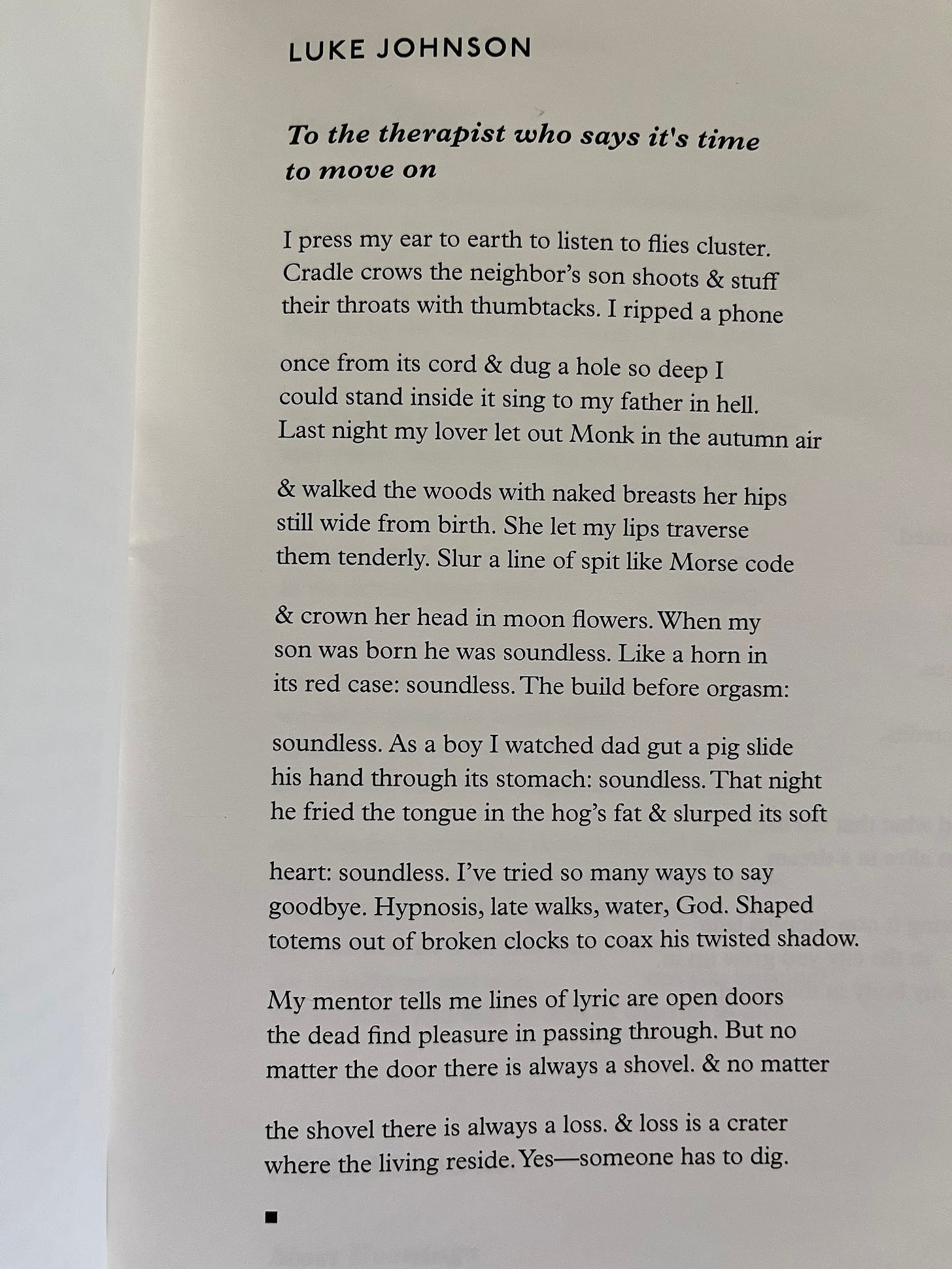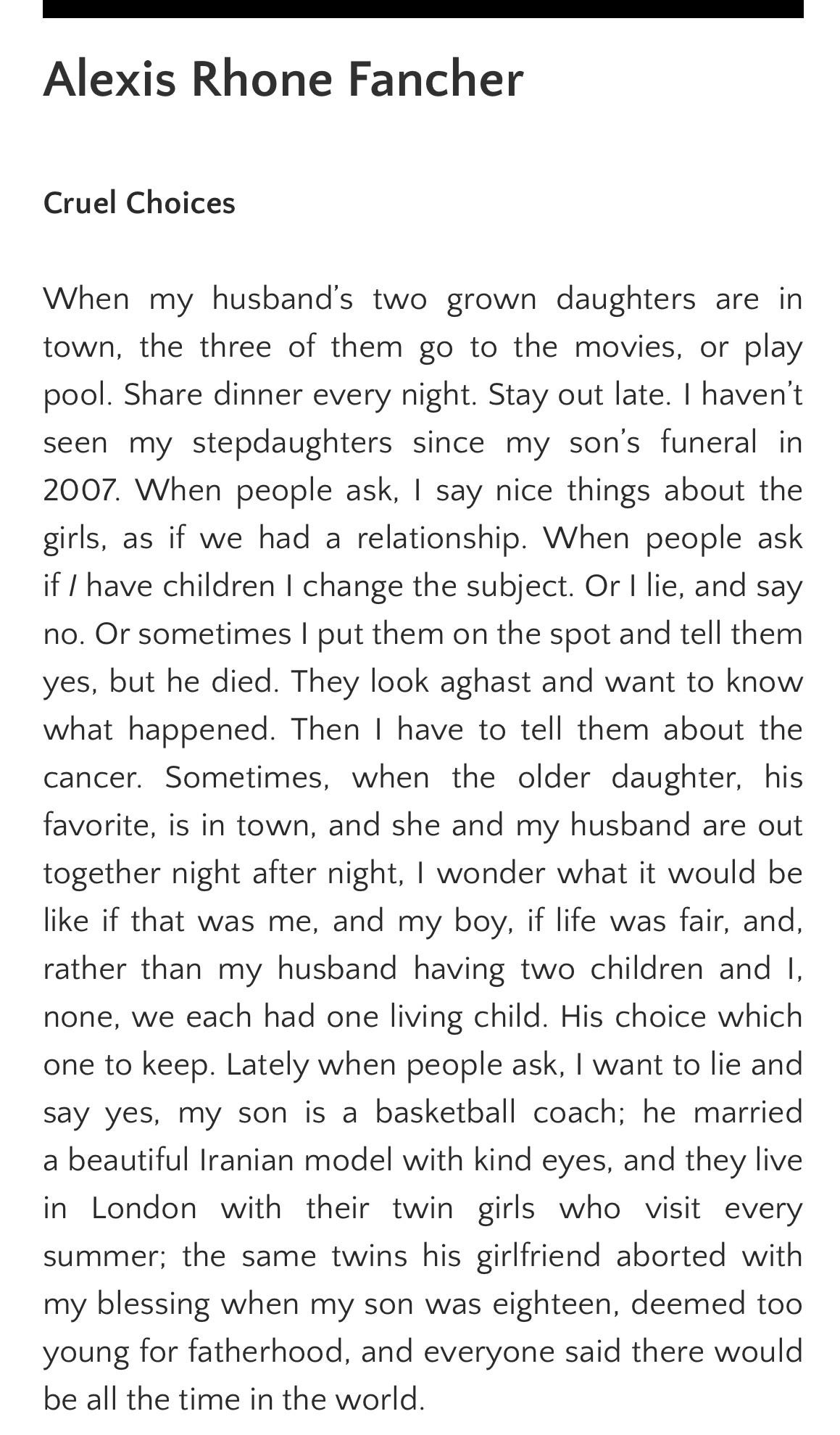In response to last week’s prompt “How dare anyone say…” my friend, the brilliant poet *Meghan Sterling wrote the following poem and sent it my way:

How Dare They Say
I was lucky to have him, his
knuckles like steel, his stubble
stinking of smoke. How dare
they say I should have tried
to fix him, keep him, as if he
were a dog to be trained to love.
Now a dead dog, the windows
kicked out from inside, the yellow
walls torn down to the studs. I
was told I should have bound him,
wrapped him, thrown him into a cell,
that there he would have come clean,
begun to want what was good again.
As if I was that good thing. As if I
hadn’t been low, too sick to leave,
groveling like something kicked.
Her poem got me thinking that there are also those out there who believe they know how and who we should love or feel grateful for. How dare anyone dictate gratitude?
My dear friend and one of my favorite living poets, Eugenia Leigh, author of BLOOD, SPARROWS & SPARROWS and BIANCA (both out with Four Way Books) wrote a poem entitled One Year After My Dying Father and I Stop Speaking to Each Other Again. This poem changed me. It gave me permission to thin of grief differently and to consider estrangement as its own grief canon.
I covet the reels of the lucky ones going on
about their dead. Everyone I have lost
I have lost before the end.
Recently, I was reading my contributor’s copy of Poetry Northwest and came across the poem To the therapist who says it’s time to move on, by Luke Johnson. In this poem, Luke writes about the idea that there must come a time when we “move on” from our grief. He writes in response and resistance to this idea through dark, sometimes surreal images. His last lines in particular—
no matter
the shovel there is always a loss. & loss is a crater
where the living reside. Yes—someone has to dig.
And lastly, in the first issue of Mackinaw: a journal of prose poetry, Alexis Rhone Fancher writes about how grief can find you as you navigate life with the still-living. How ghosts are slippery fish that insist on being seen and felt as we go about the business of trying to be human and alive. Their pulsing gills and their terrible mouths.
Prompt: Read the poems above by Meghan Sterling, Eugenia Leigh, Luke Johnson & Alexis Rhone Fancher. Write about a time in your life when someone (authority figure, doctor, therapist, etc.) told you that it was time to___________. OR write about a time in your life when you felt envious, outraged or sad about the way someone else experienced a loss. Give yourself permission to long for something or to reject something. For example, if you lost someone to an overdose or suicide (stigma), have you ever felt envious of someone who lost someone to cancer or in a car accident (“blameless”)? If you are estranged from a child or parent you love(d), what do you feel when others talk about a child or parent who has died? Notice any discomfort as you write. Write into that discomfort.
This week’s subscriber feature poem is written by Meghan Sterling. If you’d like a poem you’ve written in response to one of my prompts, or would like to see me write a prompt around one of your poems, please e-mail it to joanpglass@gmail.com with the subject line “SUBSTACK FEATURE.” I will get back to you if I would like to feature your work.
*Meghan Sterling’s work is published in Los Angeles Review, Colorado Review, Rhino Poetry, Meridian, Hunger Mountain and many other journals. Self-Portrait with Ghosts of the Diaspora (Harbor Editions), Comfort the Mourners (Everybody Press) and View from a Borrowed Field (Lily Poetry Review’s Paul Nemser Book Prize) came out in 2023. Read her work at meghansterling.com.





